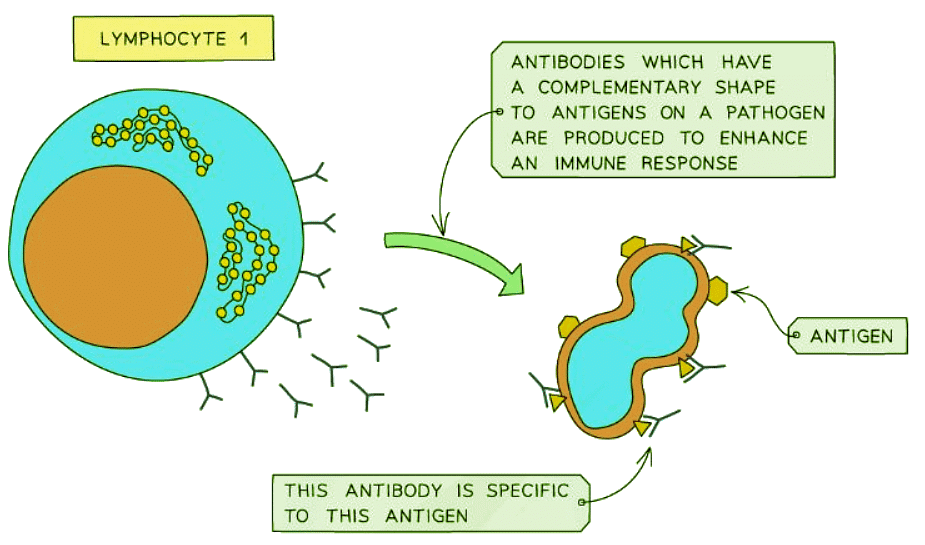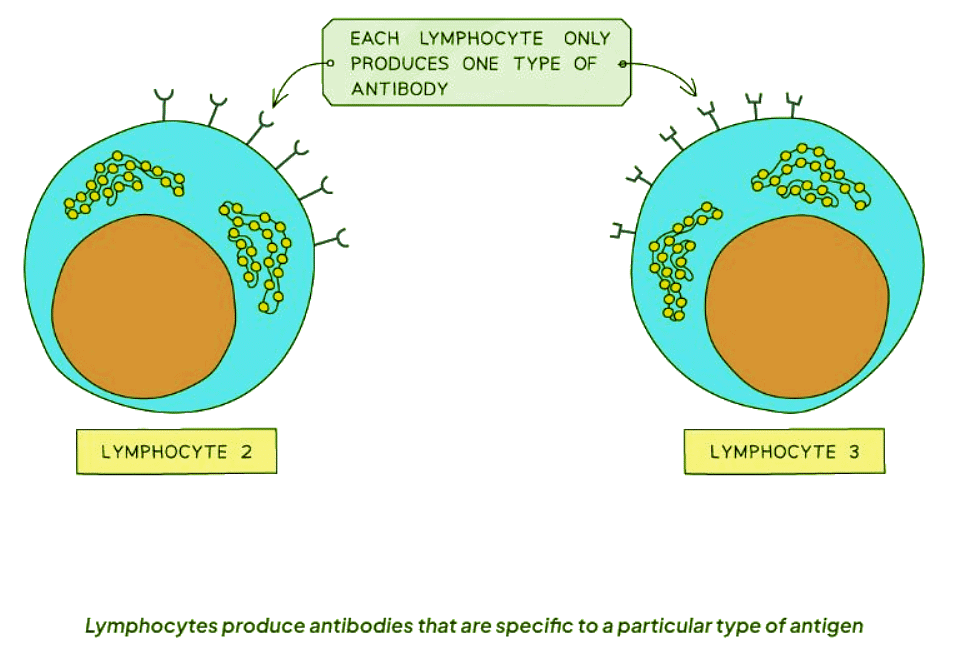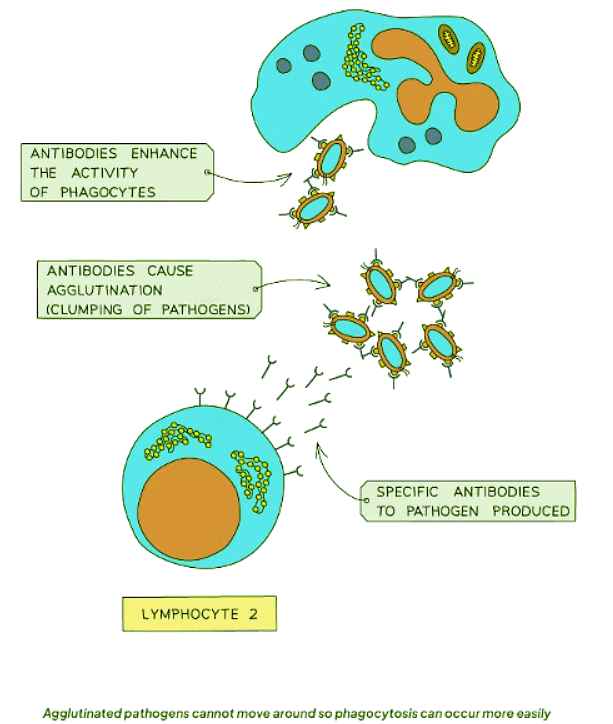Class 10 Exam > Class 10 Notes > Biology for GCSE/IGCSE > Antigens & Antibodies
Antigens & Antibodies | Biology for GCSE/IGCSE - Class 10 PDF Download
Antigens & Antibodies: Extended
- Every cell possesses molecules, including proteins, that extend from their cell membranes.
- These molecules are called antigens.
- Individuals have unique antigens on their cell surface membranes.
- Lymphocytes can detect foreign antigens, such as those on pathogens within the body.
- When foreign antigens are recognized, lymphocytes produce antibodies that are complementary in shape to the antigens on the pathogenic cell's surface.
Lymphocytes producing antibodies diagram


The role of antibodies
- Antibodies have the capability to bind to antigens, leading to the agglutination of pathogens.
- Agglutination inhibits the mobility of pathogenic cells.
- Simultaneously, chemicals are released to alert phagocytes of the presence of pathogens.
- Phagocytes then migrate towards the infection site, where they engulf and eliminate pathogens.
- Agglutination facilitates the engulfment of multiple pathogens simultaneously.
Phagocytes and agglutination diagram

Immunity
- Upon encountering a pathogen for the first time, lymphocytes undergo an initial response, which may take several days, often resulting in illness.
- Following the initial encounter, lymphocytes can generate memory cells that preserve the blueprint for producing specific antibodies.
- Consequently, upon subsequent exposure to the same pathogen, antibodies can be swiftly produced and in larger quantities, preemptively destroying pathogens before they proliferate and cause sickness.
- This mechanism accounts for how individuals develop immunity to certain diseases after a single infection.
- It's important to note that this mechanism isn't effective against all disease-causing microorganisms, particularly those that undergo rapid mutation, altering the antigens on their cell surfaces.
- Consequently, if these mutated pathogens invade the body again, the memory cells from the initial infection may not produce antibodies that effectively match the new antigens.
Question for Antigens & AntibodiesTry yourself: What are antigens?View Solution
The document Antigens & Antibodies | Biology for GCSE/IGCSE - Class 10 is a part of the Class 10 Course Biology for GCSE/IGCSE.
All you need of Class 10 at this link: Class 10
|
101 videos|193 docs|33 tests
|
FAQs on Antigens & Antibodies - Biology for GCSE/IGCSE - Class 10
| 1. What are antigens and antibodies? |  |
Ans. Antigens are molecules that can trigger an immune response in the body, while antibodies are proteins produced by the immune system to neutralize antigens.
| 2. How do antigens and antibodies interact in the body? |  |
Ans. Antigens bind to specific antibodies, which then mark the antigen for destruction by other immune cells in the body.
| 3. What are antitoxins and how do they differ from antibodies? |  |
Ans. Antitoxins are antibodies that specifically target toxins produced by pathogens, neutralizing their harmful effects. Antibodies, on the other hand, can target a wide range of antigens.
| 4. How are antigens and antibodies used in medical diagnostics? |  |
Ans. In medical diagnostics, specific antibodies can be used to detect the presence of antigens in a patient's blood or tissues, helping to diagnose infections or diseases.
| 5. Can antigens and antibodies play a role in vaccine development? |  |
Ans. Yes, antigens can be used in vaccines to stimulate the production of antibodies in the body, providing immunity against specific pathogens.
Related Searches




















